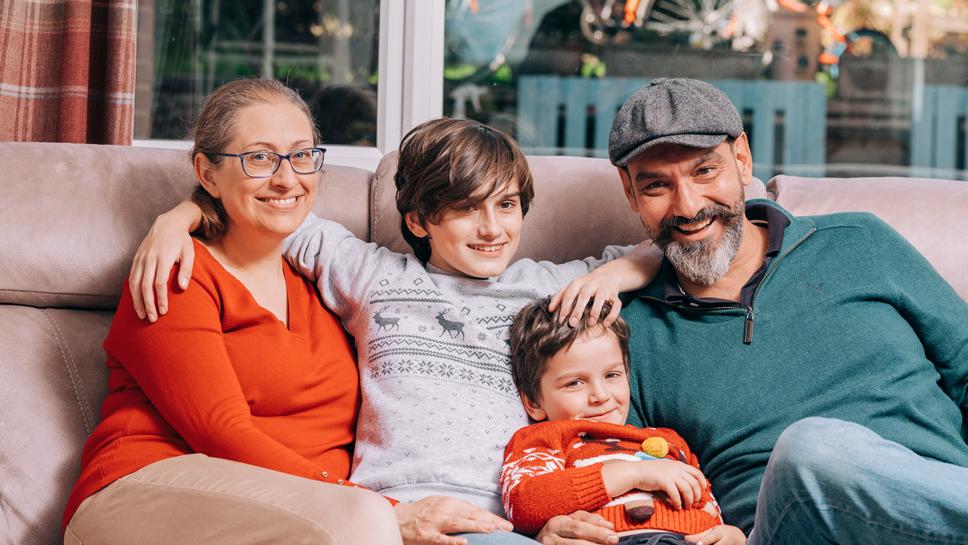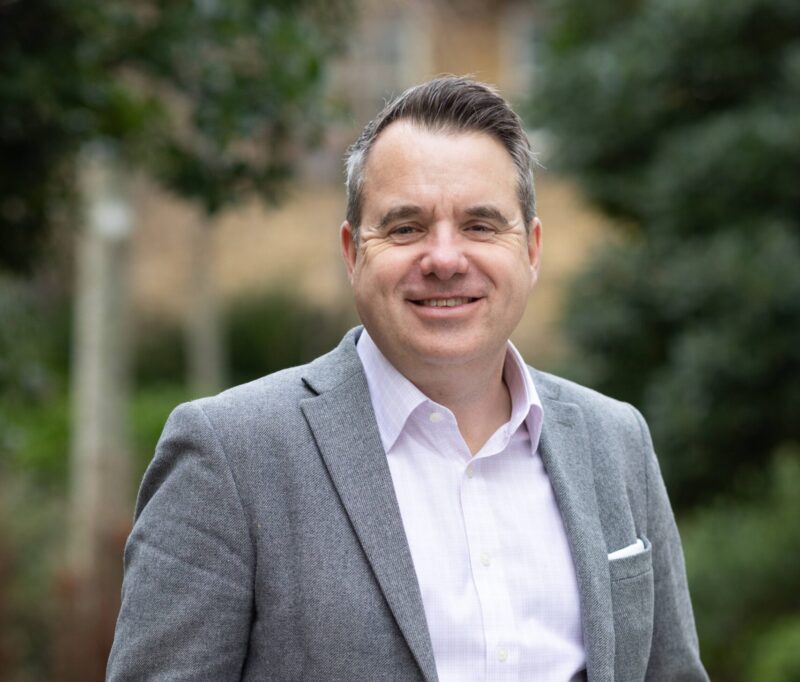When Pedro and Jo’s son, Luca, was diagnosed with Duchenne muscular dystrophy in 2013, they worried about what his future would look like. They assumed he wouldn’t be able to walk or ride his bike, like other children. Pedro shares how – with the help of Muscular Dystrophy UK and access to treatments – this Christmas will be a time of hope and appreciation.
“He found the freedom of riding a bicycle” – Access to treatments bringing hope to families this Christmas

When we first got his diagnosis, we kept thinking: “when will he need a wheelchair, what kind of life will he have, how long have we got with our son?”. That fear consumes you. But the truth of the matter is – you have to stop worrying about what’s to come. Don’t worry about tomorrow. Focus on the moment. Embrace the moment.
Luca’s diagnosis
Luca was our first child, so we weren’t comparing him, and we didn’t know what muscular dystrophy was like. When he was about 18 months old, our childminder told us that she’d noticed that his development seemed different compared to other children.
After many tests, checks and scans, Luca was diagnosed with Duchenne muscular dystrophy, a muscle-wasting condition. The doctors couldn’t tell us much about what it meant at that point. It was a bombshell, but what type of bombshell, we didn’t know. We had lots of questions, but we couldn’t really take it in because we were in shock.
Muscular Dystrophy UK (MDUK) were there to help us with useful information. We didn’t know much, and we wanted to avoid ‘Google doctoring’. MDUK gave us information and resources which had been more sensitively curated than what we might find online.
He found the freedom of riding a bicycle
After a while, the hospital told us that Luca was eligible for Translarna – a drug used to treat Duchenne muscular dystrophy with a nonsense mutation in the dystrophin gene. *
Although the specialists can’t say for certain how much Translarna has helped Luca’s condition, we think it’s working. We were told that he may end up in a wheelchair between the age of eight and 14. If you look at him now, he’s doing well. He’s not too stiff and he’s got good mobility and flexibility. He does everything everyone else does at school.
Luca saw his friends riding their bikes and that encouraged him to learn. At first, he didn’t have the muscle power. But he kept pushing and persisting and then he just got it. At that point, he didn’t want anything else. He found the freedom of riding a bicycle. We live at the top of a hill, and he’s managed to get to the top without stopping more times than me!
Campaigning for access to treatments
Securing access to Translarna for Luca wasn’t easy. Even though he was eligible for the treatment, due to his age and genetic condition, it’s not available on the NHS. We thought, “OK, there’s something that’s going to help him – and it’s not readily available to everyone – we need to campaign for this.”
We found three other families, who were already campaigning for access to the drug trial and joined them. MDUK helped us raise awareness and build our network as we campaigned for fast-track access to treatments. We picketed outside Downing Street, wrote letters to the Prime Minister, and even went on Newsnight and the BBC News big red couch.
As a lone family, we wouldn’t have known where to go. MDUK gave us the platform and the tools which meant we could be the voice of the campaign. I don’t think we’d have been able to do it alone.
Feeling hopeful this Christmas
We’re looking forward to spending quality time together this Christmas. Translarna has let us get on with life in the knowledge that Luca’s getting the best he can right now. There’s not anything else that we could fight for. So, it’s kind of freed us to get on with life and just be a family.
Developments in research and treatments give us hope that many other families will get to spend time with their kids this Christmas while they do regular activities, like riding a bike and just enjoy these everyday experiences.
Time is life, so let’s give people with muscular dystrophy as much time as possible.
With your support, we can help more people like Luca access the treatments they need, so that one day, no one will live a life limited by muscle-wasting conditions.
Translarna is currently available in England, Wales, and Northern Ireland through a Managed Access Agreement (MAA). This allows people to access the treatment through the NHS while further evidence is gathered about it. The National Institute for Health and Care Excellence (NICE) is currently appraising Translarna as the MAA is ending in January 2023. Their draft recommendation, which is currently being consulted on, recognises the clinical effectiveness of Translarna and that it is likely to slow the progression of Duchenne muscular dystrophy. It also recognises that Translarna has a positive impact on the lives of people receiving it and on caregivers. However, at this stage NICE is concerned about the cost-effectiveness of the treatment and are suggesting that people currently receiving Translarna should continue to have access to it until they and their NHS clinician consider it appropriate to stop, but that it shouldn’t be provided for new patients after January 2023. MDUK is challenging this conclusion and is urging NICE and PTC Therapeutics to work together to address the concerns raised about cost-effectiveness. For more information, read our update.
